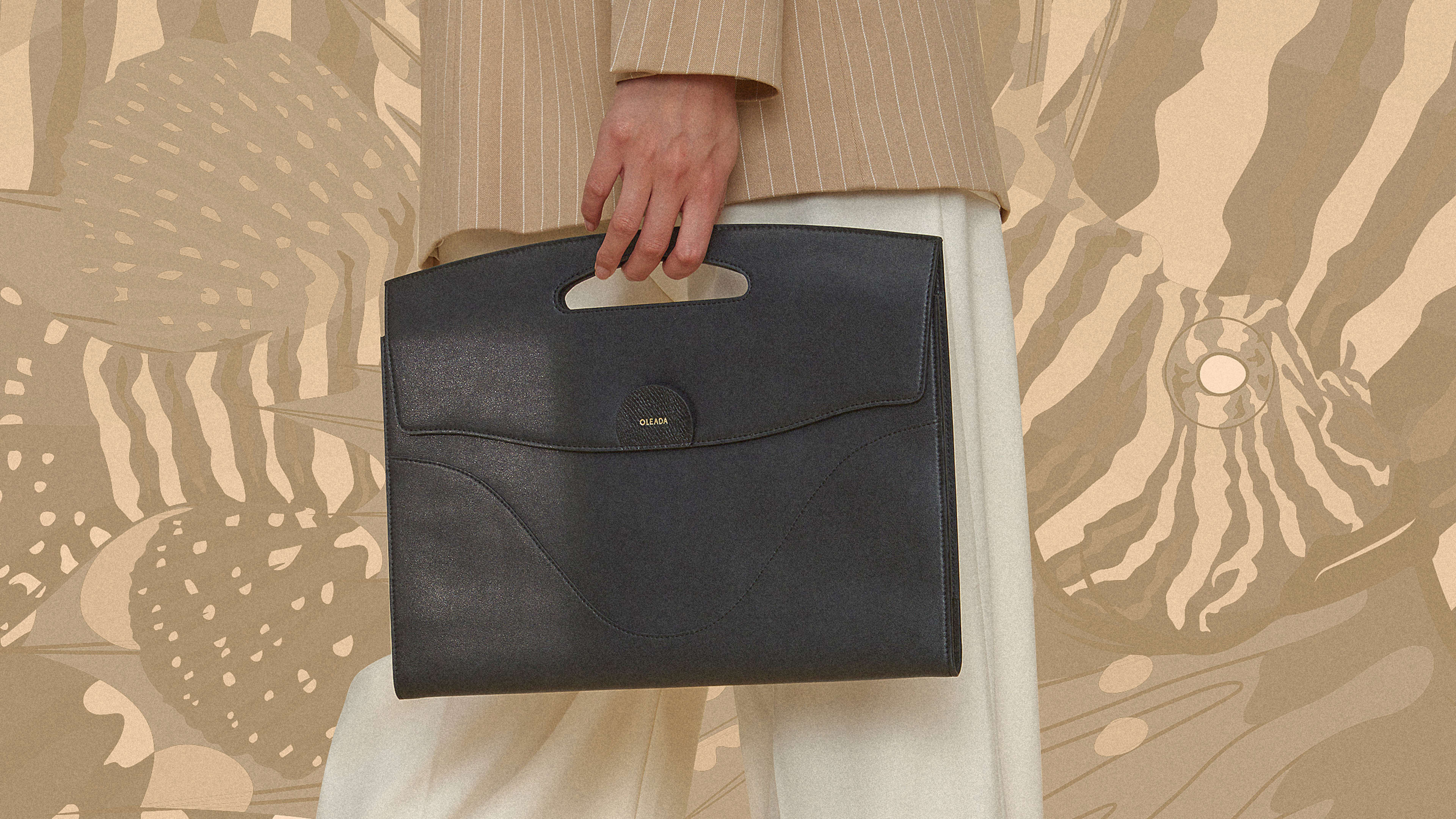Many fashion brands are working to become more sustainable. But what if sustaining the planet is not enough? What if we need to actively repair damaged ecosystems?
That’s the vision behind Inversa, a Florida-based startup that creates leathers from invasive animals. The company pays fishermen and hunters for the skins of predatory creatures, including Lionfish, Dragonfin, and Everglade pythons, that threaten natural ecosystems because they have no natural predators. Inversa then treats these skins, transforming them into leathers that can be used to make fashion accessories.
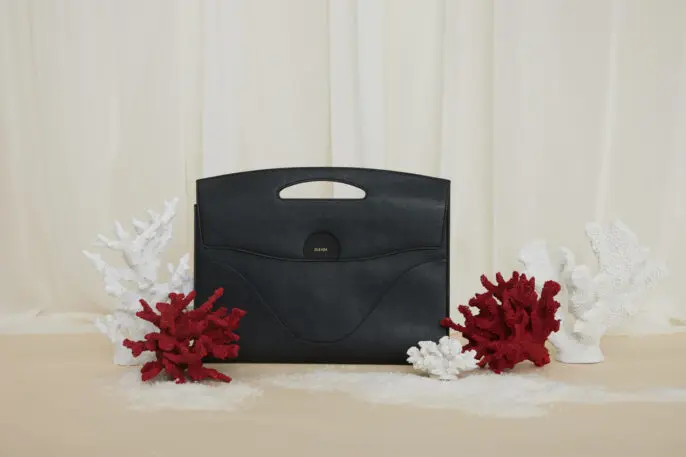
For its latest product, Inversa has partnered with the women-owned luxury brand Oleada, which creates functional accessories designed to make women’s lives easier. Together, the companies have incorporated Lionfish leather into a sleek $245 laptop sleeve, which converts into a portable stand that props up your computer, making it more ergonomic to type. The sleeve also uses vegan leather made from 34 plastic bottles that have been removed from the ocean.
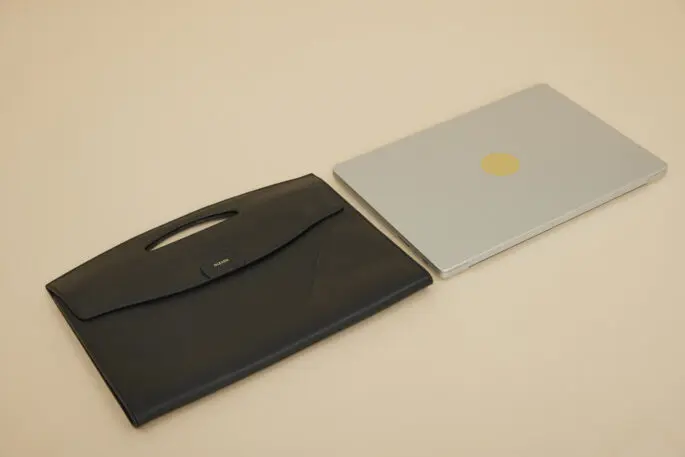
Scientists believe that in the 1980s, humans released a group of Lionfish from a fish tank into the Atlantic Ocean off the coast of Florida. Without predators, they multiplied exponentially, becoming the dominant species everywhere from the coasts of Brazil to Barcelona and Boston. They destroy the entire oceanic food chains, including coral reefs.
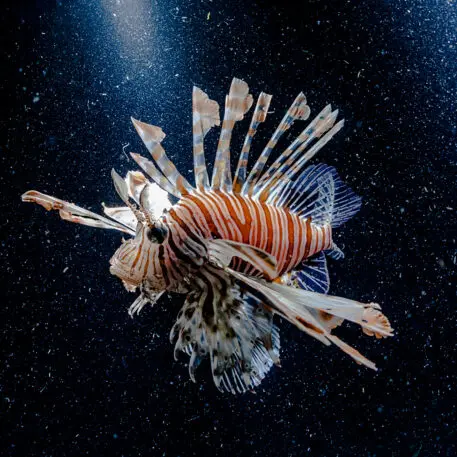
The Lionfish have a striking appearance, with bright white stripes covering their maroon-colored bodies, and a long venomous spine that must be handled with care. Inversa takes their skins, tanning them with a nontoxic chrome so that they are durable and then dyed in a wide array of colors. (The leathers have been subjected to third-party testing to ensure they are robust.) The final leather has a scaly texture, looking like snakeskin. The Oleada laptop bag has a medallion in the center that prominently features the Lionfish skin.
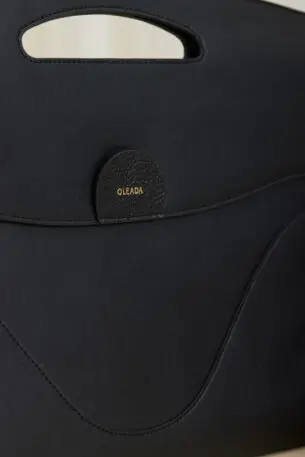
In the past, there has not been a market for Lionfish, since they are not typically consumed as food. Aarav Chavda, Inversa cofounder and CEO, says that the most challenging part of creating this leather has been educating fishermen about the crisis and encouraging them to hunt Lionfish instead of other seafood.
“We go to fishermen who have been fishing for 10 generations,” says Chavda. “We pay them a high price to hunt the creature that has been killing off the groupers and snappers that they rely on for food. Sometimes, it takes a while for them to understand our mission.”
Recognize your brand’s excellence by applying to this year’s Brands That Matter Awards before the final deadline, June 7.
Sign up for Brands That Matter notifications here.
